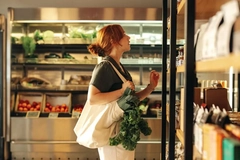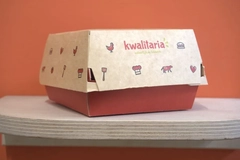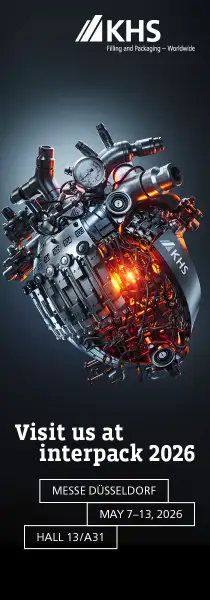European Commission urged to resist industry’s “existential threat” lobbying as waste directive revision looms

24 Nov 2022 --- A group of leading business representatives and consumer and environmental organizations are calling on the European Commission (EC) not to bow to a recent tide of industry lobbying pressure against planned revisions to the Packaging and Packaging Waste Directive (PPWD), which are set to be announced next week.
In a joint letter to EU industry chief Thierry Breton and environment commissioner Virginijus Sinkevičius, the signatories – including the European Environmental Bureau (EEB) and the Environmental Investigation Agency (EIA) – urge resistance against numerous pleas from industry associations claiming the revisions pose an “existential threat” to Europe’s economy.
Prominent actors across the packaging value chains claim the revisions – a draft of which was leaked several weeks ago – are “unrealistic and discriminatory” and that it could cost millions of European jobs and billions of euros in wasted infrastructural recycling development. Associations also claim the basis for prioritizing reuse models is unscientific.
Piotr Barczak, senior policy officer for waste and regulation at the EEB, tells PackagingInsights these claims are “picked out from the air” and that industrial change is a necessary and inevitable evolution on the path to the EU’s Green Deal.
“Some industries will close – those producing single-use packaging – and some will be created, like services around reusable packaging. The question is – what do we favor? Environmental and climate-positive solutions? Or business as usual that pushes us to climate collapse?” he remarks.
 Reuse and refill systems will take over the packaging sector if the PPWD revisions are upheld.Europe’s industrial descent
Reuse and refill systems will take over the packaging sector if the PPWD revisions are upheld.Europe’s industrial descent
The EU’s economic crisis is deepening as inflation rates and energy prices rise amid the Ukraine war. Numerous sectors are reportedly facing potentially permanent deindustrialization as a result. German chemical corporation BASF was recently reported to be downsizing “permanently” in Europe after negative financial results.
However, a BASF spokesperson tells PackagingInsights that for the time being, this is not a downsizing but a “cost-saving” program expected to secure €500 million in non-production areas.
US President Joe Biden’s recent Inflation Reduction Act – a US$369 billion subsidy package for green industries – is compounding these issues. Senior EU officials told Politico this week a subsidy race is now set to begin as policymakers in Brussels scramble to incentivize industries not to move to the US. Thierry Breton also called the US’ subsidy package an “existential challenge” to the EU economy.
The threat of Chinese influence is also growing among European industries. With electricity prices at an all-time high, metal industry associations have warned that this winter is a “life or death” moment as many producers are already forced to close permanently. This opens the door for cheap sourcing materials from China, where production methods fall well below European environmental standards.
Is a U-turn likely?
Recently, the EC made a U-turn on its REACH legislation revisions against hazardous chemicals, which it says was necessary to protect European business interests during this unprecedented economic period. German chemical industry influence was blamed for the EC’s decision to cut vital parts of the legislation’s updates.
However, the EEB says a similar backtrack on the PPWD revisions is unlikely despite similar industry lobbying efforts. “The public support for ambitions in this matter is overwhelming,” asserts Barczak.
“Not only NGOs, but also progressive businesses are calling to keep the ambition high, and also few governments expressed their support for an ambitious revision on PPWD.” EU industry is increasingly under threat from foriegn competitors like the US and China.
EU industry is increasingly under threat from foriegn competitors like the US and China.
“Ambition is needed when it comes to reduction targets, reuse targets, recycled content, quality recycling and excellent collection. If those are not aimed for, then we are continuing the detrimental business as usual that leads us to environmental collapse,” he concludes.
The science behind reuse
The leaked PPWD revisions stipulate a mandatory reuse rate of 20% by 2030 and 75% by 2040 for plastic bottles. However, this year, the European Paper Packaging Alliance (EPPA) released a meta-analysis of life cycle assessments (LCA) that shows recycling single-use packaging has a lower environmental impact than reuse models.
According to the analysis, a reusable system generates 2.8 times more CO2-equivalent emissions and consumes 3.4 times more freshwater.
A more recent LCA by the EPPA also shows that switching to reusable alternatives would generate 48% more CO2-equivalent emissions, consume 39% more freshwater and demand 82% more mineral and resource extraction than virgin material.
UNESDA Soft Drinks Europe also asserts the EC has not conducted proper environmental analysis in its revision drafts.
However, Paul Foulkes-Arellano, a circularity educator for UK-based consultancy firm Circuthon, tells PackagingInsights that “LCA results always favor the companies or people that commission them.”
By Louis Gore-Langton












